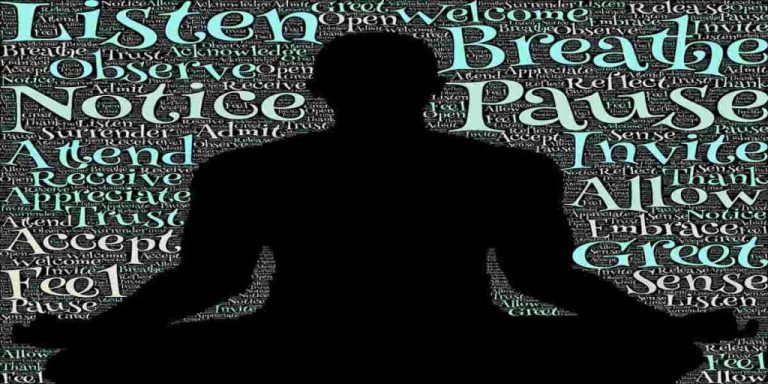What are the Strengths And Weaknesses of Public Speaking?
Public speaking has strengths such as persuasive impact and effective communication, while weaknesses include fear of public speaking and lack of confidence. Public speaking is a powerful tool to influence and engage an audience, enabling the speaker to convey their message effectively.
However, many individuals experience stage fright and anxiety, hindering their ability to speak confidently in public. This can lead to a lack of clarity, poor delivery, and the inability to hold the attention of the audience. Overcoming these weaknesses requires practice, preparation, and building self-confidence.
Embracing public speaking strengths while addressing weaknesses can enable individuals to become confident and compelling speakers, effectively conveying their message to their audience.
Strengths Of Public Speaking
Public speaking is a valuable skill that offers numerous strengths. It enhances communication abilities, boosts confidence, and allows individuals to convey ideas effectively to a wide audience.
Boosts Confidence
One of the major strengths of public speaking is its ability to boost confidence. When you stand in front of an audience and deliver your message with clarity and conviction, it can have a transformative effect on your self-esteem. Boldly expressing your thoughts and ideas strengthens your belief in yourself and your abilities.
Speaking in public requires courage, and as you overcome your fears, you become more confident not just in your speaking abilities, but also in various other aspects of your life. This newfound confidence radiates in your personal and professional interactions, ultimately enhancing your overall sense of self-assurance.
Effective Communication
Public speaking is a powerful tool for effective communication. By articulating your thoughts clearly and concisely, you can engage and captivate your audience. Public speaking allows you to express your ideas in a structured manner, ensuring that your message is understood by everyone.
As you become a proficient public speaker, you develop the skills necessary to communicate with different types of people, adapting your message to suit their needs and preferences. Whether it’s delivering a presentation, participating in a business meeting, or engaging in a casual conversation, the ability to communicate effectively can be a significant advantage in all areas of life.
Ability To Persuade
Another strength of public speaking is its ability to persuade and influence others. When you speak confidently and passionately about a topic, you have the power to sway opinions, change minds, and inspire action. By employing effective rhetorical techniques such as storytelling, logic, and emotional appeal, you can create a compelling case that resonates with your audience.
Being able to persuade others is a valuable skill in various professional roles, including sales, marketing, leadership, and advocacy. Public speaking equips you with the tools to articulate your viewpoint persuasively, allowing you to achieve your goals and make a meaningful impact.
Promotes Leadership Skills
Public speaking is closely linked to leadership skills as it requires you to take charge, inspire others, and lead with conviction. When you speak in public, you position yourself as an authority, commanding attention and respect from your audience. This positions you as a leader, whether it’s within your organization, your community, or your personal life.
In addition to enhancing your communication and persuasive abilities, public speaking also cultivates other essential leadership competencies such as problem-solving, decision-making, and critical thinking. Through the process of preparing and delivering presentations, you develop the ability to analyze information, organize your thoughts, and engage in strategic planning.
Weaknesses Of Public Speaking
While public speaking can be a powerful tool for self-expression, it is not without its weaknesses. Understanding the potential challenges associated with public speaking allows individuals to address them proactively, leading to more successful and impactful presentations.
Stage Fright
One of the most common weaknesses of public speaking is stage fright. This debilitating fear of public speaking can cause individuals to experience anxiety, nervousness, and even physical symptoms like a racing heartbeat or trembling hands. Overcoming stage fright requires practice, preparation, and developing a sense of confidence in one’s abilities as a speaker.
Fear Of Judgment
Another weakness that many individuals face when speaking in public is the fear of judgment from others. The fear of being criticized or judged negatively can erode confidence and hinder effective communication. It’s important to remember that everyone makes mistakes, and that constructive feedback can be beneficial for personal growth. By focusing on the message and the value it brings, individuals can overcome this fear and deliver their speech with conviction.
Lack Of Preparation
A lack of preparation is undoubtedly a weakness that can sabotage a public speaking performance. Without proper preparation, speakers may struggle to organize their thoughts, convey their message clearly, or anticipate potential questions or challenges from the audience. By dedicating time to researching, outlining the speech, and practicing delivery, individuals can mitigate this weakness and improve their overall speaking skills.
Difficulty In Engaging The Audience
Engaging an audience is an essential aspect of effective public speaking, but it can be a weakness for many presenters. Failing to connect with the audience often results in a lack of attentiveness, disinterest, or the inability to convey the intended message effectively. To overcome this weakness, speakers can utilize techniques such as storytelling, asking questions, and using visual aids to capture audience attention and keep them engaged throughout the presentation.
Understanding and addressing the weaknesses associated with public speaking is crucial for anyone looking to become a confident and impactful speaker. By acknowledging and actively working on these weaknesses, individuals can improve their public speaking skills and deliver compelling presentations that resonate with their audience.
Frequently Asked Questions On What Are The Strengths And Weaknesses Of Public Speaking?
What Are The Strengths Of Public Speaking?
Public speaking enhances communication skills, boosts confidence, and enables effective sharing of knowledge and ideas.
How Does Public Speaking Improve Personal Development?
By overcoming fear, improving critical thinking, and enhancing leadership abilities, public speaking encourages personal growth and self-confidence.
What Are The Weaknesses Of Public Speaking?
Nervousness, fear of judgment, and the potential for miscommunication are common weaknesses associated with public speaking.
Conclusion
Public speaking has both strengths and weaknesses. On the positive side, it allows individuals to effectively communicate ideas, establish credibility, and inspire audiences. However, it can be challenging due to nervousness, fear of public judgment, and the need for thorough preparation.
Despite the weaknesses, with practice and proper techniques, anyone can improve their public speaking skills and reap the numerous benefits it offers. Embracing public speaking can lead to personal growth, career advancement, and increased self-confidence.


